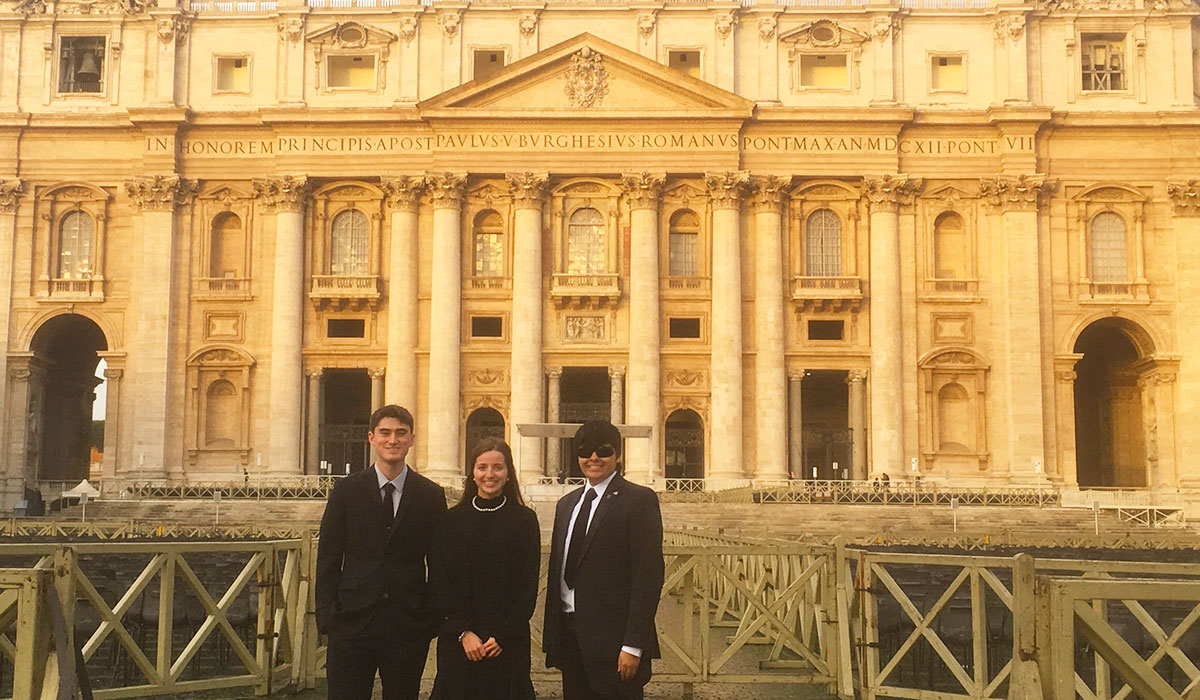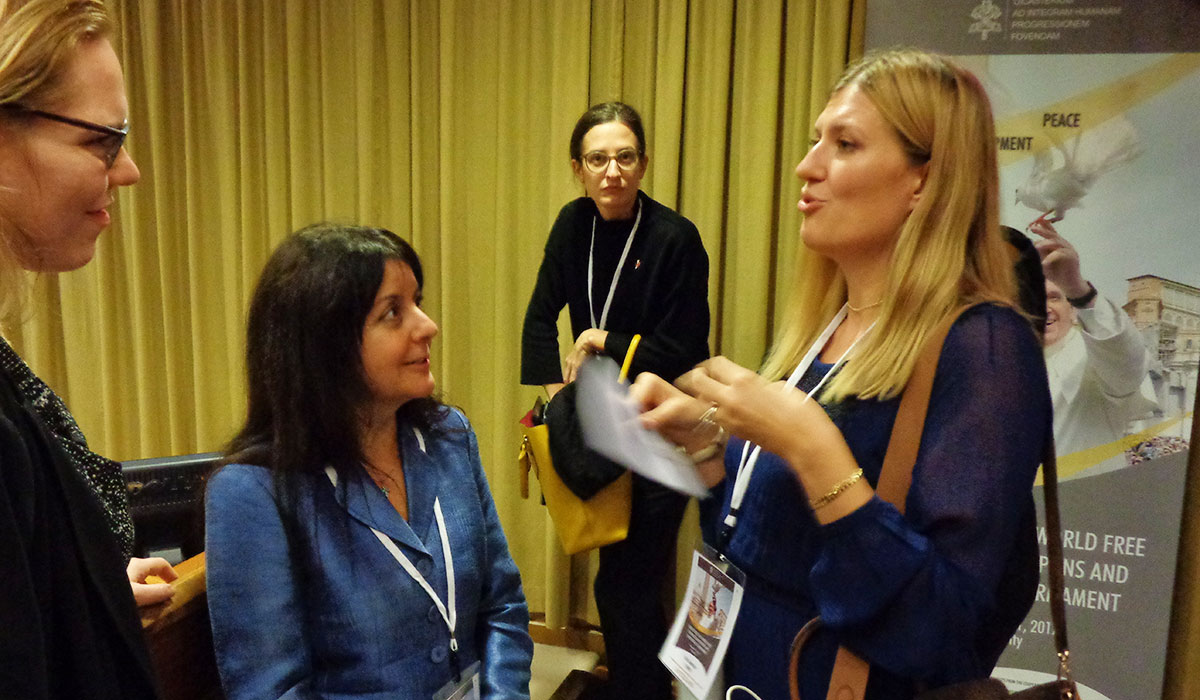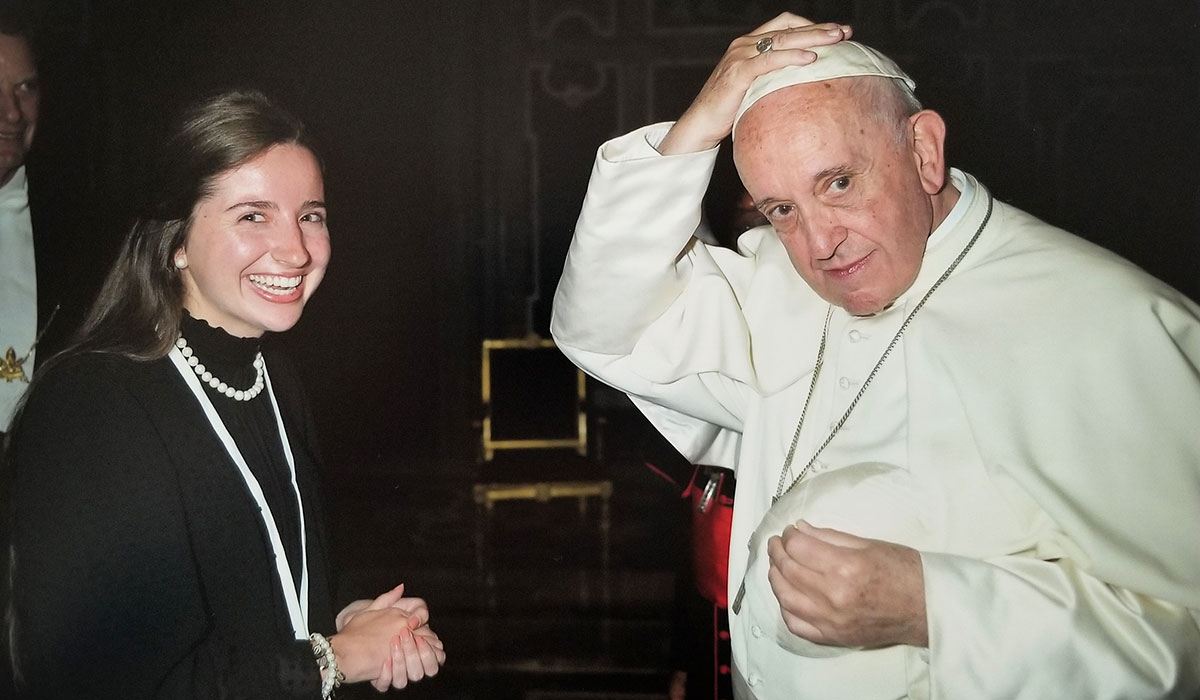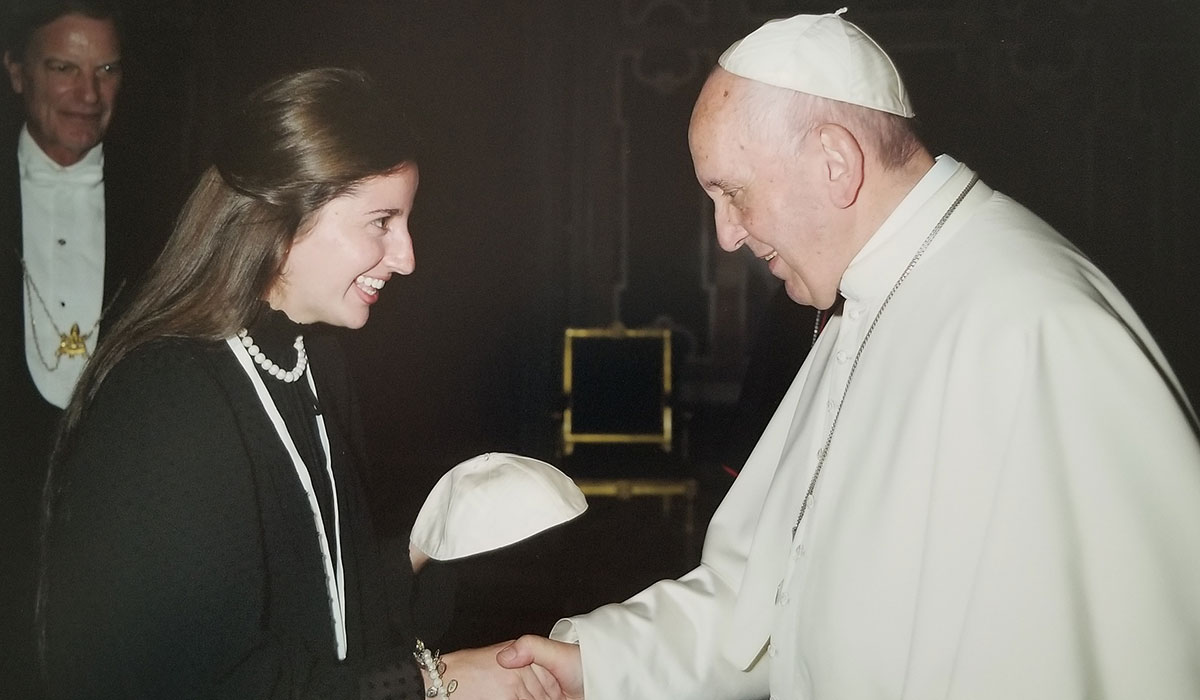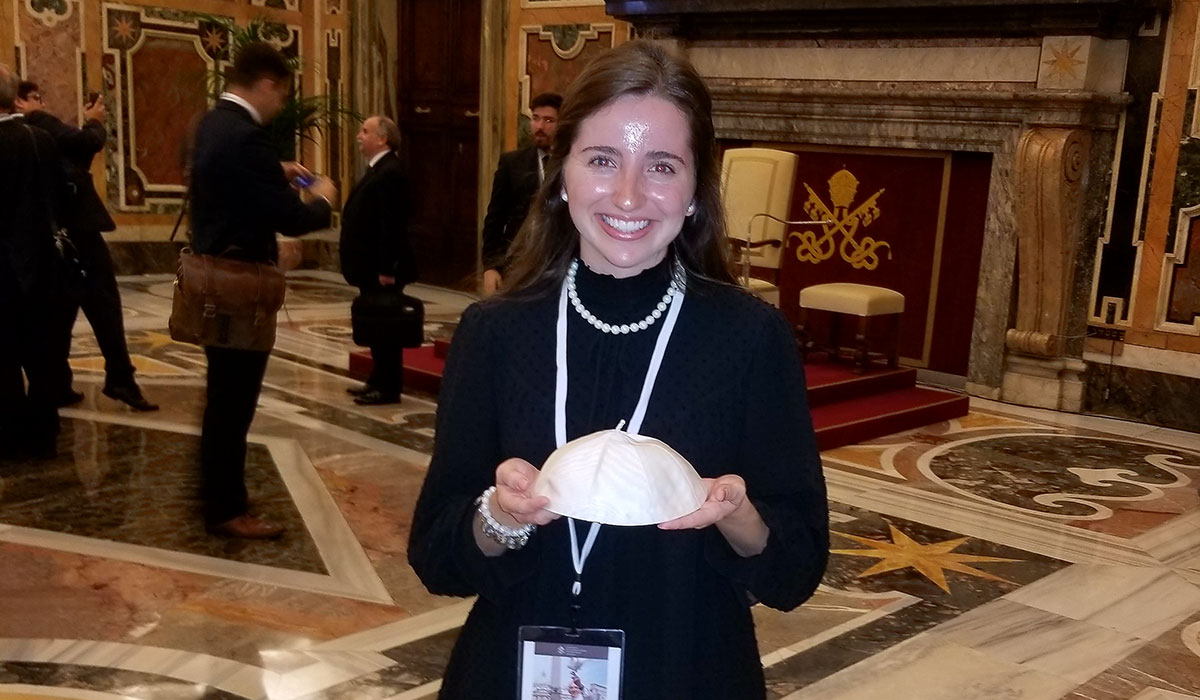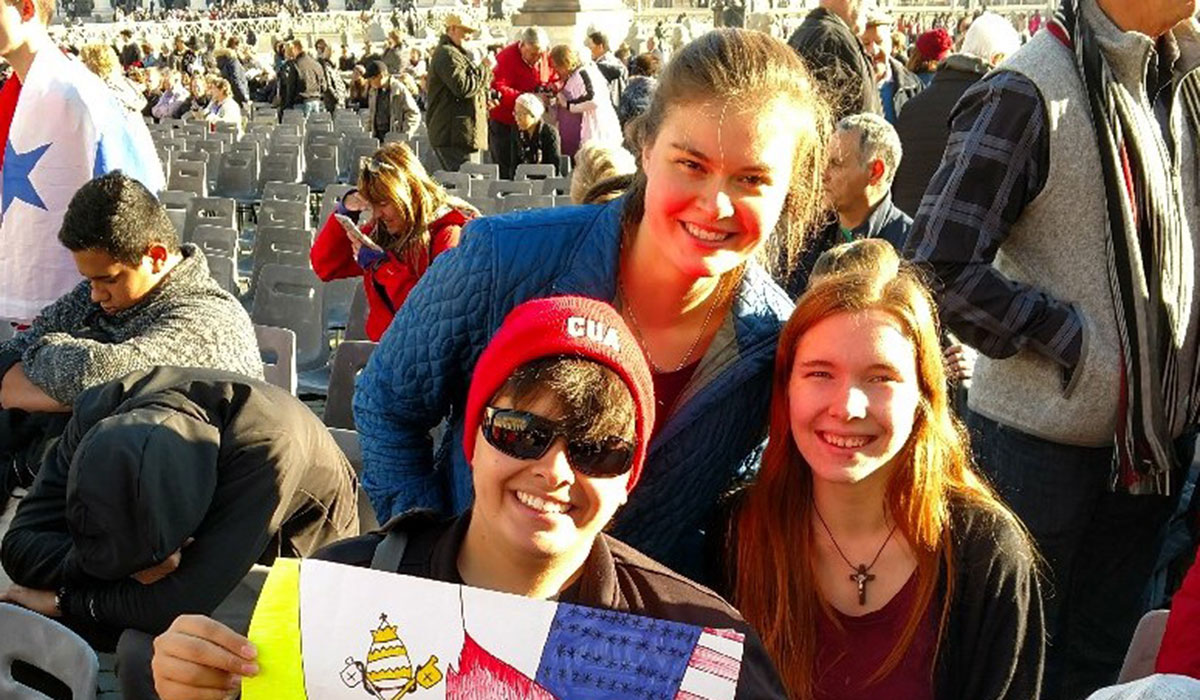
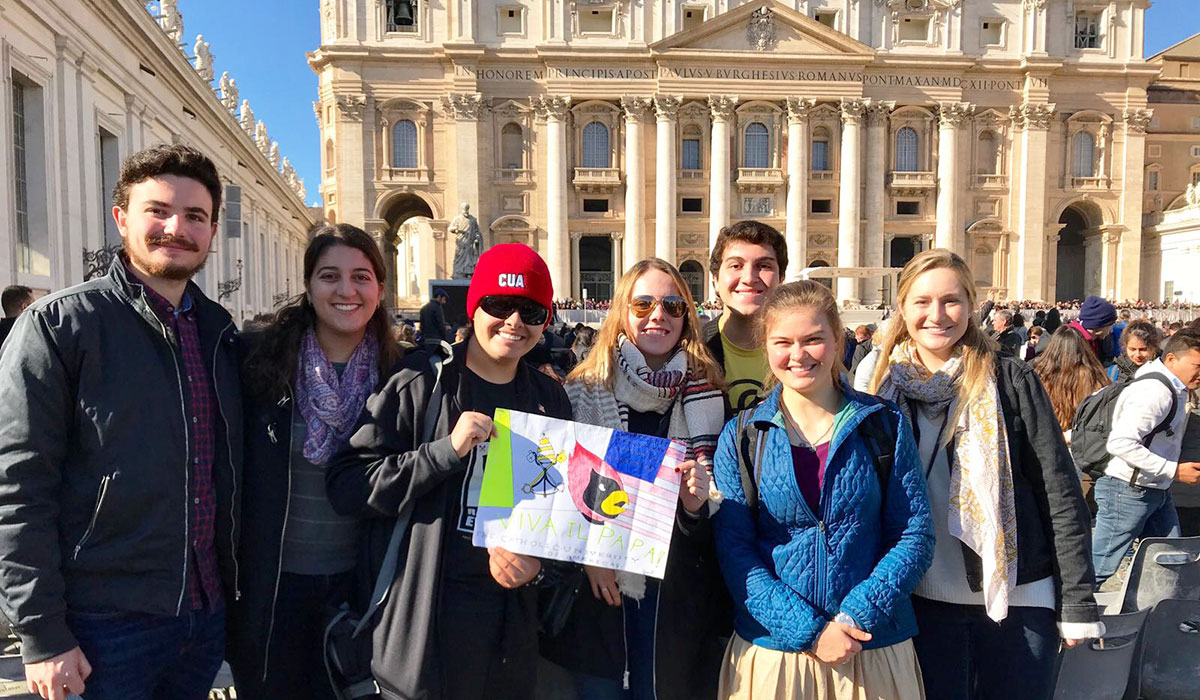
On Sunday, Dec. 10, Beatrice Fihn will receive this year’s Nobel Peace Prize on behalf of an international coalition that successfully negotiated the United Nations nuclear weapon ban treaty adopted last July.
Though they won’t be in Oslo, Norway, when Fihn accepts the prize, members of the Catholic University community will celebrate the honor, knowing they had a hand in the work that led to the signing and implementation of the treaty. Last month a group from the University met Finn and 11 Nobel Prize Peace laureates at a Vatican symposium marking the Catholic Church's leadership on the treaty.
Maryann Cusimano Love, symposium participant and associate professor of politics, is a founder and advisory board member of the Catholic Peacebuilding Network, a co-sponsor of the Vatican event. Love, who helped to negotiate the treaty on behalf of the Holy See, is a fellow of the University’s Institute for Policy Research & Catholic Studies, which is a member of the Catholic Peacebuilding Network.
The symposium was part of a series of events that Love has helped organize to expand the conversation about the Church's position, leadership, and work on integral nuclear disarmament, which Pope Francis referenced in a March 2017 message to a United Nations conference. In his message, the Pope noted, “Achieving a world without nuclear weapons involves a long-term process, based on the awareness that “everything is connected” within the perspective of an integral ecology.”
Other members of the University community who participated in the November symposium included three students and Richard Love, visiting lecturer in the politics department.
At the symposium the students met Pope Francis and engaged in conversation with the Nobel Peace Prize laureates, senior diplomats and leaders from the United Nations and NATO; bishops and representatives from the U.S. Conference of Catholic Bishops; and other academic experts and religious leaders. For the students the experience was life changing.
William Deatherage, a sophomore from Beaverton, Ore., who is double majoring in politics and theology, said that “hearing Pope Francis speak with such urgency and concern... cemented the Church’s role as a mediating force in global politics.”
Rory Martinez, a junior from Albuquerque, N.M., who is double majoring in theology and history, noted that the experience bolstered her desire to one day become an ambassador to the Vatican. Deatherage and Martinez are studying at the University’s campus in Rome this semester.
Junior politics major Timothy Jones, from Bergen, N.J., said that his experience prompted him to add a minor in Peace Studies, in the hope of one day working for a non-governmental organization and being “part of the push for integral human development and against nuclear weapons.”
Love noted that the Catholic Church has long worked to reduce nuclear weapons. "At a time when the headlines are filled with nuclear threats, the Church reminds us of our moral responsibilities to build peace and reduce nuclear weapons," she added.
Jones said that “the ability to walk right up to a Nobel Peace Prize laureate and start a conversation was and still is surreal to me. Prior to attending Catholic University I had placed little thought into the possession of nuclear weapons, but after learning in depth about just war theory, my mind had been made up; these weapons have no place in our society.”
